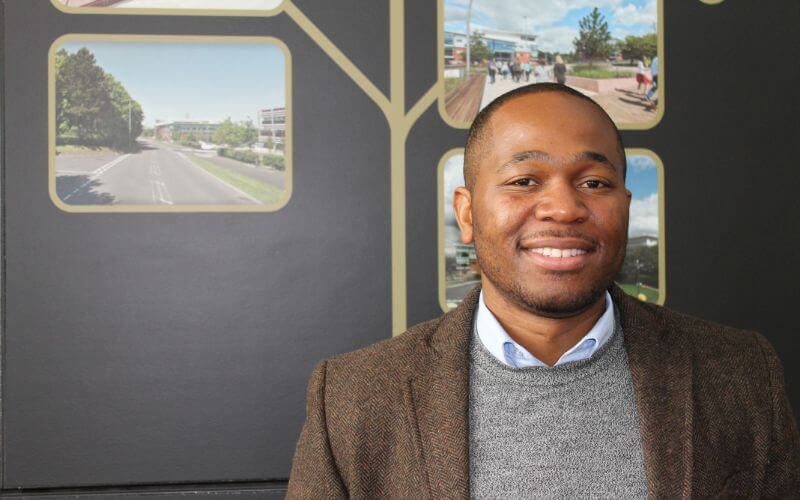September 2, 2020
How lessons from Covid-19 can support the fight against malaria
LivFul recently examined in European Pharmaceutical Manufacturer how lessons learned from the Covid-19 pandemic could also be applied to the global mission to save lives from malaria and other insect-borne diseases.

Hogan Bassey, Chief Innovation Officer and Founder of LivFul, which has a research base at Sci-Tech Daresbury, recently examined in European Pharmaceutical Manufacturer how lessons learned from the Covid-19 pandemic could also be applied to the global mission to save lives from malaria and other insect-borne diseases.
The article can be read in full below, or on the European Pharmaceutical Manufacturer website at: https://www.epmmagazine.com/opinion/how-lessons-from-covid-19-can-support-the-fight-against-mala/
2020 has been an unprecedented period of upheaval and learning for those of us working in infectious diseases. For many of us with specialities – in my case, malaria – there has been the question of how to maintain progress in our fields while respecting the impact and requirement for resources demanded by a once in a lifetime pandemic.
For territories that rely on aid from the US and Europe, there is the issue of countries focussing on supporting their own resources rather than sharing the products that are available. Global demand for PPE has skyrocketed, and ultimately the first country to submit a purchase order to the manufacturer is the one that claims the equipment. For middle to lower income countries with already troubled economies, this makes for a very difficult situation.
However, there are some positives we can take from the situation. Covid-19 has highlighted some of the systemic failings that limit progress in healthcare globally. If we’re able to address those problems in the fight against Covid-19, we’ll be better positioned to eradicate malaria and other diseases.
For example, it’s my view that most of the world’s resources are used for innovation within the world’s wealthiest countries. What is common in these countries are complex health systems with intricate medical solutions. These solutions are expensive and often rely on existing and sometimes convoluted infrastructure to operate. This ultimately results in people outside these infrastructures not being able to access the best technology at an affordable price.
Ventilators are a perfect example from the COVID 19 crisis. The intricate systems of payment, regulations, and various nuanced hospital requirements involved in producing ventilators is the reason they are so expensive, and also the reason why ventilators are not more widely available across the entire world . It took only a matter of weeks for companies to invent effective, lower cost products that can be produced quickly. If this situation was addressed prior to Covid-19, the global death toll would be vastly reduced.
Lack of access to quality healthcare solutions is what drives LivFul. Since our founding, LivFul has focused on preventing infection and enabling access to game-changing health innovation. This has been evident during recent months, when we pivoted into Covid-19 emergency supply products to enable health organisations to access high-quality, masks, suits and test kits to health organizations
Growing up in Nigeria, I had several bouts of malaria before the age of ten. Looking at the number of people in my community that also had the disease, I knew something had to change, so I invented a repellent with household products in my own bathtub. The product worked, and it planted the seed for developing health solutions for people like me. I vividly remember barging into my mum’s room to tell her that one day I’d own a pharmaceutical company that would help get medicine to children across the world so they didn’t experience the same problems I had.
Sometimes a child’s naivety can cut through the heart of a problem and at that young age I was aware that malaria could be dramatically reduced if large companies worked in tandem with non-profits.
That remains my view today. Why can’t they?
We’re using this approach to develop a repellent that will be accepted and proven as an efficient control tool against malaria. We view our product as a repellent without compromise, and is fuelled by innovation at lower costs.
We’re currently delivering a project in Ghana with an established pharma company. This involves us improving one of their active ingredients with our technology to help them drive access to the product. Through LivFul’s technology and approach to innovation we’re able to get this repellent into the hands of lower income areas of the country.
When we developed a revolutionary family-friendly insect repellent to halt the transmission of diseases like malaria and Dengue fever, we knew we could have a significant impact on insect-borne disease. If people in malaria-prone areas can purchase and use our repellent, these diseases can be stopped before they destroy lives, families, communities and industries. Prevention and access to life-saving medical innovations are critical, and hence we believe, the reason why we’re in business.
We want to move to a world where innovation does not get invented for the wealthiest countries and “trickle down” to the poorest, resulting in less effective solutions that are often impractical for new environments. Rather, innovation needs to be created for the people who need it most at a cost they can afford. We believe this approach would result in better innovations for everyone.
The opportunity to expand into new markets by making their technologies more accessible is a hugely exciting proposition for pharma companies, as they can see themselves as trapped in the traditional ways of doing business. A firm such as ours can operate outside the established parameters to get different products into difficult economic contexts in a sustainable and profitable manner.
In addition to this, we also partner with governments and non-profits to move beyond traditional models of charitable product distribution to reach more people in a sustainable way. When budgets are tight, as they are now, more non-profits are looking for innovative, sustainable models to tackle complex health challenges on a limited budget.
So, to solve systemic issues one has to involve institutions across sectors, all of whom must buy into innovation. Reflecting on the Covid-19 experience gives us insight to how we can eradicate more diseases: we want more institutions to consider their ways of working. Collaboration and cutting-edge innovations are a couple of the reasons why LivFul recently set up a base at the national science and innovation campus, Sci-Tech Daresbury within the Liverpool City Region in the UK. This location gives us access to the North West of England’s network of amazing universities and research institutions, as well as businesses specialising in chemistry and engineering.
In the midst of a deadly pandemic, events can move so fast that it can be difficult to sit back and take stock. However, it’s important to reflect upon the lessons learned from Covid-19 as we attempt to overcome other diseases. We proudly support the global health organizations and private companies working to find game-changing solutions to malaria and without a pathway to provide these solutions, the war against malaria will never end.




